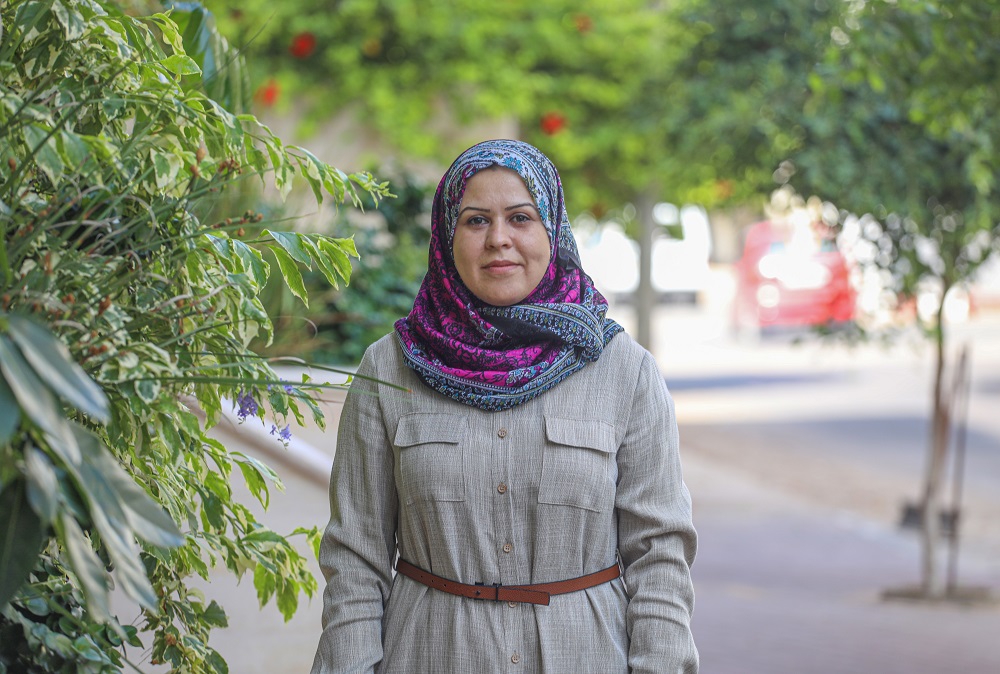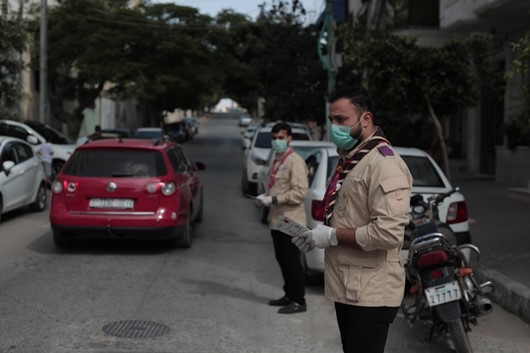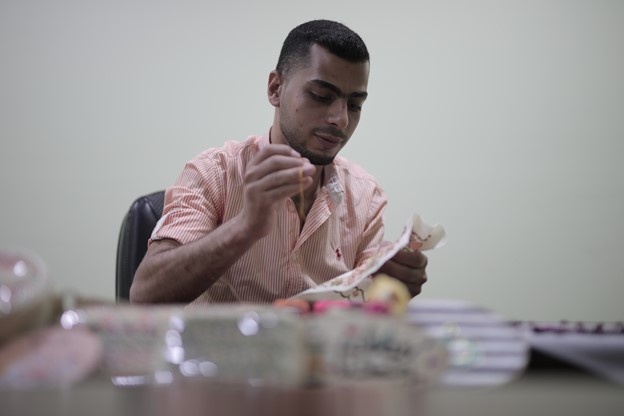An estimated 38% of young people in the Gaza Strip have considered suicide at least once. With mental health becoming endemic in Gaza, Islamic Relief’s Heba AbuJarbou examines the multifaceted impact of youth unemployment.

Crisis within a crisis
Years of emergencies and protracted humanitarian crisis have all but exhausted the resilience of The two million Palestinians here in Gaza. The political crisis and divide, the occupation, and the blockade is significantly limiting the socio-economic opportunities available to young people. The youth unemployment rate is currently at 70%, with young graduates making up 58% of unemployed youth.
We are also increasingly seeing this steep unemployment and widespread poverty having an impact on households headed by young people. In such families, food, water insecurity and regular electricity cuts are a common concern.

The Covid-19 pandemic has contributed to the increased unemployment rate and the mental health challenges young people are experiencing. Young people are also struggling under restrictions on movement imposed to halt the spread of the deadly virus, with young women particularly vulnerable to unemployment along with increased domestic violence.
We have seen rising incidents of violence perpetrated by men against women and girls, perhaps fueled by anxiety about money and illness.
Youth suicide becoming all too common in the Gaza Strip
“Despair, frustration and depression are very common among young people, many choose to migrate or commit suicide” Salman, a young man struggling to secure long-term employment. For many young people here, death has unfortunately become a constant shadow over their lives. As a generation, they have experienced and continue to witness, death and violence. Many say they have developed post-traumatic stress and anxiety disorders that are largely untreated.

As a result, Gaza’s young people are growing more desperate. They struggle to retain hope for a future free of violence and full of opportunities. Many have come to see suicide as a means of escape from their troubles. Through our work on the ground Islamic Relief sees the suffering of the families left behind as they struggle with the trauma that comes with losing a loved one to suicide.
Suicide rates in Gaza have been trending upward for the last 10 years. Current average figures put the number at 562 attempts per year. The suicide rate is much higher among young men aged 18-30 who make up about 75% of all suicide deaths here, with young men shouldering the social expectation that they will provide for their family. Feeling without value and unable to seek help due to the stigma attached to mental health, young men are turning to suicide as a means of escape.
Mental health services are failing to meet rising demand
Mental health services in Gaza are far too underfunded to accommodate the increasing demands, particularly during the Covid-19 pandemic which has severely overburdened health services.
The pandemic has changed our lives dramatically. We all feel worried and are unsure about our future. Mental health is one of the main things everyone struggles with – the lockdown has only exacerbated it.
The high suicide rate among the youth, who are meant to be the most hopeful and full of dreams, shows the bleakness of the situation here.
The lack of strategic priority to provide targeted mental health services is closely linked to socio-economic wellbeing. We must prioritise mental health support and invest in our youth for the future of tomorrow.
We cannot afford to lose the leaders of tomorrow; we need to act now.










